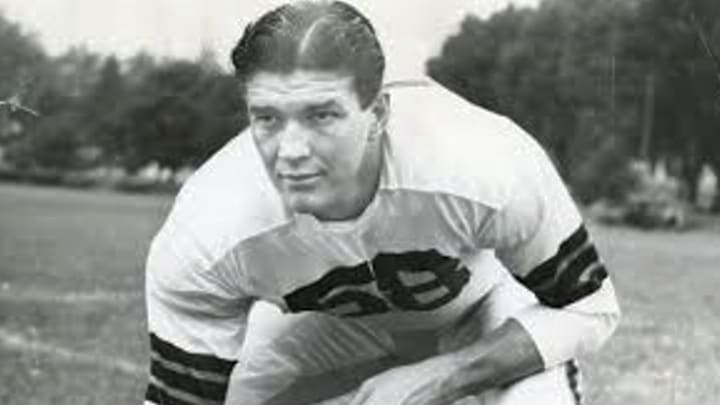Utah Utes all-time greatest football players: No. 7 Mac Speedie

Mac Speedie had a brief but notable career at the University of Utah, where he played as an end (wide receiver) from 1939 to 1941. During his time at Utah, Speedie showcased his exceptional athleticism and versatility, traits that would later define his professional career in the NFL and AAFC (All-America Football Conference). Speedie’s college career was marked by his impressive speed, agility, and ability to make big plays, earning him recognition as one of the top players on the team.
Speedie joined the Utah Utes football program after transferring from the University of Illinois, where he initially began his college athletic journey. At Utah, he quickly established himself as a key player on both offense and defense. Playing primarily as a receiver, Speedie was known for his ability to catch difficult passes and turn them into significant gains, often outpacing defenders with his speed. His performance on the field made him one of the most dangerous receiving threats in the Western United States during his era.
In addition to his contributions on the football field, Speedie was also a standout track and field athlete at Utah. He competed in hurdles and sprints, which helped him further develop his speed and agility—skills that translated seamlessly onto the football field. His dual-sport involvement at Utah highlighted his athletic versatility and contributed to his reputation as one of the university's most talented athletes of the time.
During Speedie’s tenure with the Utes, the team experienced several ups and downs. However, his individual performances remained a constant bright spot. Speedie’s ability to make clutch plays in critical moments made him a fan favorite and a reliable target for his quarterbacks. His time at Utah also served as an essential developmental period that helped him refine his receiving skills, which would later propel him to stardom in professional football.
Speedie’s impact at Utah extended beyond his athletic achievements; he was known for his dedication to the team and his work ethic. These traits not only made him a leader on the field but also set an example for his teammates. Despite the challenges of playing in an era with limited media coverage and fewer opportunities for college athletes to gain national attention, Speedie’s performances at Utah were strong enough to catch the eye of professional scouts.
After his college career, Speedie went on to have an illustrious professional career, most notably with the Cleveland Browns in the AAFC and NFL, where he became one of the league’s premier receivers. While his time at Utah was relatively short, it played a crucial role in shaping the skills and attributes that would define his professional career and cement his legacy as one of the greats in football history. He was enshrined into the Pro Football Hall of Fame in 2020.
